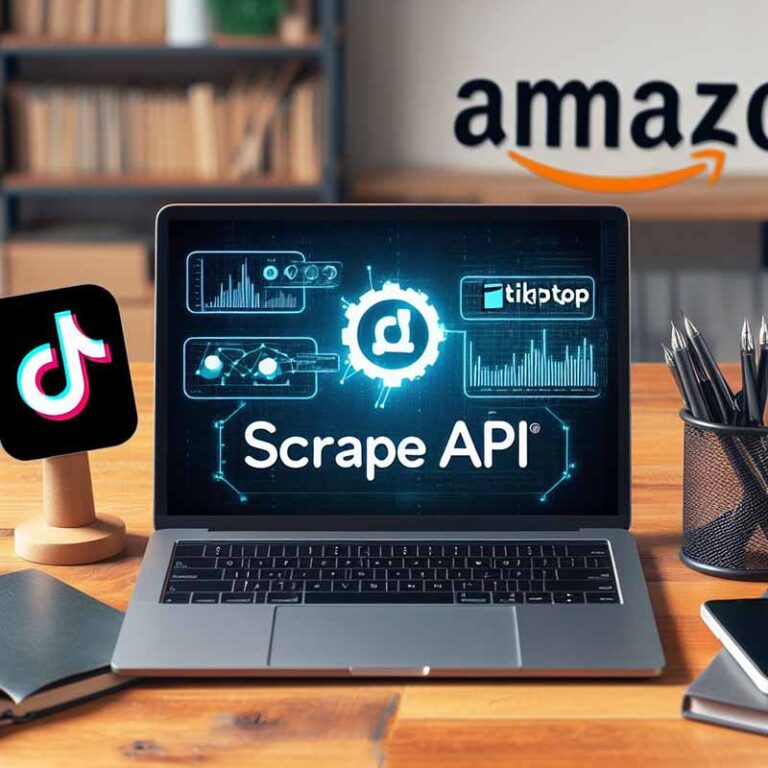In today’s digital era, data has become a crucial support for business decisions. To obtain valuable information about competitors, market trends, and consumer behavior, many businesses and individuals are turning to data collection tools, with Scrape API being particularly noteworthy. This article will first delve into the technical principles of Scrape API, then compare it with other web scraping tools on the market (Beautiful Soup, Octoparse, ParseHub), and finally introduce Pangolin Scrape API.
Scrape API Technical Principles
Scrape API adopts the method of automating the simulation of normal user visits, automatically fetching data from the target website through intelligent simulated operations. This method mimics user behavior in a browser, enabling Scrape API to handle websites with dynamic JavaScript rendering, ensuring comprehensive data coverage. Additionally, Scrape API offers highly flexible customization capabilities, allowing users to tailor scraping rules to their needs, including support for collecting data based on specific zip codes, suitable for scenarios like e-commerce data collection.
Comparison with Market Data Collection Tools
- Beautiful Soup: Classic Choice of Python LibraryBeautiful Soup is an open-source Python library that extracts data by parsing HTML documents using XPATH and CSS selectors. It is suitable for small businesses and individuals but may lack flexibility for websites with JavaScript rendering. It is mainly used for straightforward scenarios with relatively low entry barriers.
- Octoparse: Cloud-Based Web Scraping ToolOctoparse is a cloud-based web scraping tool that supports regular expressions and real-time data through a visual interface, catering to non-technical users. While it comes with a higher price tag, it is suitable for mid-scale data collection, offering a moderate entry threshold.
- ParseHub: User-Friendly Web Scraping ToolParseHub is a user-friendly web scraping tool for extracting information from websites. It supports well-known sources with API integration but has limitations on the number of records parsed at different price levels. It is suitable for basic data collection but does not guarantee data quality.
Differences: Scrape API vs. Beautiful Soup, Octoparse, ParseHub
Technical Principles:
- Scrape API automates the simulation of normal user visits and supports dynamic JavaScript rendering.
- Beautiful Soup primarily extracts data by parsing HTML documents and cannot handle complex JavaScript rendering.
- Octoparse and ParseHub rely on cloud services and visual interfaces, suitable for non-technical users but limited in handling JavaScript rendering.
Applicability:
- Scrape API is suitable for scenarios requiring highly customized, high-quality, and comprehensive data, such as e-commerce data collection.
- Beautiful Soup is suitable for simple scenarios with low entry barriers.
- Octoparse and ParseHub are suitable for mid-scale data collection, ideal for non-technical users.
Scale, Threshold, Industry Differences:
- Scrape API caters to various scales of data collection, excelling in handling complex scenarios.
- Beautiful Soup is suitable for small-scale and straightforward scenarios with a low entry threshold.
- Octoparse and ParseHub are suitable for mid-scale data collection, with a moderate entry threshold but limited in handling JavaScript rendering.
Industry Differences:
- Scrape API supports data collection based on zip codes, particularly suitable for industries like e-commerce requiring regional data collection.
- Beautiful Soup is suitable for small businesses and individuals, ideal for simple data extraction needs.
- Octoparse and ParseHub are suitable for mid-scale data collection, with a relatively broad range of applicable industries.
Introducing Pangolin Scrape API
As an emerging data collection tool, Pangolin Scrape API has attracted attention with its advanced technology and outstanding performance. Compared to similar products, Pangolin Scrape API exhibits unique advantages in technical principles, applicability, scale, entry threshold, and industry focus. Particularly noteworthy are its support for data collection based on zip codes and the provision of a simple and efficient end-to-end solution, making it stand out in fields such as e-commerce data collection. Through a comparison with mainstream data collection tools, Pangolin Scrape API has emerged as a rising star in the data collection domain.

